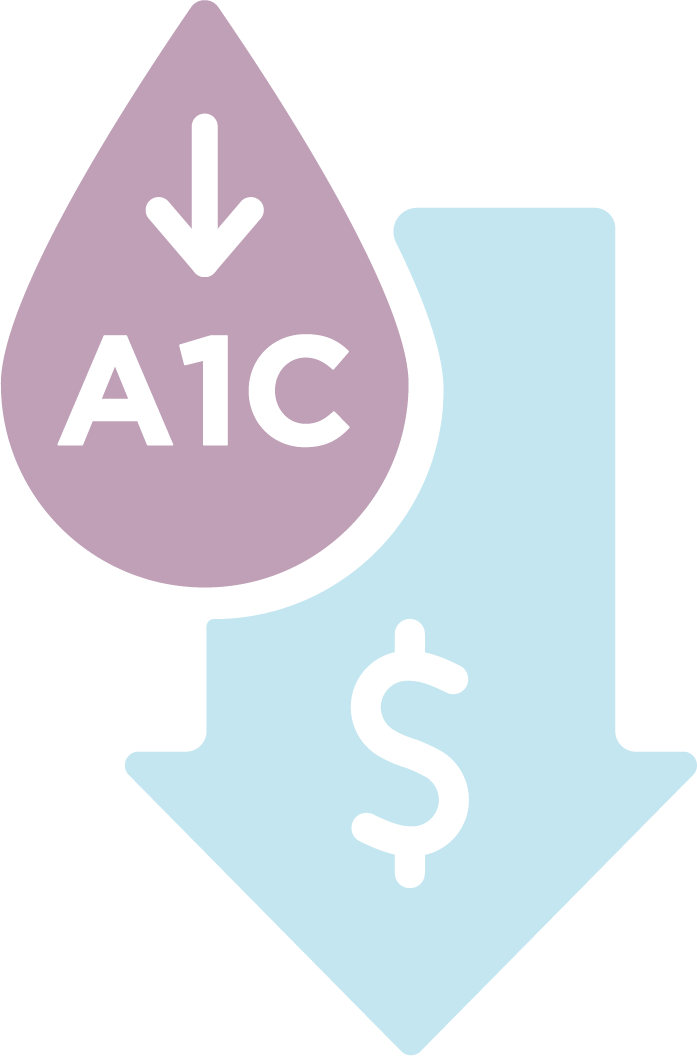How Christus Health Reimagined Diabetes Support Through Health System Specialty Pharmacy

FLIPPING THE SCRIPT ON DIABETES CARE


Medication adherence hovers at around 63% in the US for diabetes patients, and patient satisfaction among patients using traditional pharmacy outlets is low (Net Promoter Score of 28).1�
Health System Specialty Pharmacy (HSSP) has emerged in recent years as an alternative for diabetes patients in search of a higher-touch pharmacy model. HSSPs’ ability to quickly turn around prior authorizations, secure financial assistance for patients, and dependably administer refills has led to medication adherence rates above 90%, average copays below $25, and marked reductions in A1C levels.2 While historically viewed as outside the scope of traditional specialty pharmacy, diabetes has come to represent a significant growth opportunity for HSSPs seeking to deploy a more integrated care model to an at-risk population. �
In 2021, as CHRISTUS Health was preparing to launch its own HSSP program, it saw an unprecedented opportunity to bring better pharmacy care to its growing diabetes population. Not only would this result in more patients being adherent to their medication with better glucose control, but also put its HSSP program on a growth trajectory to outperform most of its kind.
Diabetes pharmacy care in the US has, in large part, struggled with delivering on the clinical outcomes needed to keep this population on a healthy trajectory.
Introduction
Recognizing the need to scale quickly to sustain and benefit from an enhanced diabetes care model, CHRISTUS would need to leverage dedicated care resources ambitiously.
Pharmacy liaisons and support staff were initially assigned to 14 clinics, and by the end of year 1, the team supported 1,500 diabetes patients. This patient volume accelerated CHRISTUS's diabetes program, quickly driving revenues on par with leading HSSPs.
Staff Strategically
Launching a Health System Specialty Pharmacy, Starting With Diabetes
CHRISTUS faced a key strategic decision as it prepared to launch its HSSP program. While the potential within traditional specialty areas (Rheumatology, Oncology, Hepatitis C) was significant, the diabetes patient population represented an even larger opportunity. The challenge was finding a way to effectively serve this large population without impacting resources critical to supporting specialty patient needs.
Offer hssp
service broadly
maximize Workflow
efficiencies
To navigate this, CHRISTUS implemented a three-prong strategy:
Staff strategically for a dedicated diabetes program
CHRISTUS’ story in diabetes is one of dedication to an at-risk patient population and execution on a well-considered plan. Since launching its HSSP program in diabetes, CHRISTUS has serviced 10,845 patients, achieved an average adherence rate of 91% on this population, an average copay of $18.60, and an average A1C reduction of 2.5 for patients whose A1C levels were over 9.0 prior to enrolling in the program.
The program also resulted in comparable A1C reduction impacts across disparate income brackets, advancing health equity in the communities served by CHRISTUS.
Results
CHRISTUS’ experience in diabetes demonstrates both the impact and growth that can come from deploying HSSP services in an area of high need among a large population. As a result of this commitment, thousands of CHRISTUS patients now receive higher-touch pharmacy care, achieving outcomes that have put them on a healthier path.

Copyright | Privacy Policy




The Liaison Role at a glance
Dedicated Specialty Pharmacy Liaisons are the single point of contact for patients — coordinating refills, drug delivery, and financial or insurance challenges while monitoring adherence. They collaborate with clinical and pharmacy teams to resolve issues quickly and ensure seamless care, all with a personalized touch.
Liaisons help clinicians save time and provide vital support for patients with chronic and complex conditions.
Liaisons proactively identify and secure financial assistance opportunities to help ensure medications are affordable for patients.
Financial Assistance
Acting as the central link, liaisons drive effective communication and coordination between patients, clinicians, pharmacies, drug manufacturers and payers, ensuring alignment in the patient’s treatment plan.
Coordination of Care
Liaisons oversee refill coordination and adherence monitoring at the local pharmacy to keep patients on track with their therapy while addressing any emerging challenges.
Adherence
Liaisons oversee comprehensive documentation of all activities in the EMR and provide regular status updates to clinicians.
Documentation
1
Liaisons thoroughly evaluate prescription benefit coverage and manage PA requirements for specialty medications. Importantly, they streamline insurance processes to resolve PAs and address rejections swiftly, so patients can start treatment faster.
Prior Authorization:








Diabetes Program Growth Ramp
To maximize HSSP support for diabetes patients, the program focused on overcoming patient access challenges and meeting provider needs to improve clinical outcomes. CHRISTUS launched an ambitious plan, starting with 14 large endocrinology and primary care clinics and progressing to support 24 clinics after 12 months. ��By prioritizing diabetes medications with the greatest affordability challenges and prior authorization burdens, the program offered meaningful support to providers, enabling CHRISTUS to efficiently allocate resources across more clinics and patients.
Offer HSSP service to a broad slate of diabetes care providers and diabetes clinics
2

Cramer JA. A systematic review of adherence with medications for diabetes. Diabetes Care 2004;27:1218–1224; “Actionable Insights From the 2017/18 National Association of Specialty Pharmacy Patient Satisfaction Survey”, National Association of Specialty Pharmacy, October 2018, p.2, https://naspnet.org/wp-content/uploads/2019/07/NASP-Survey-White-Paper-2017-18_FINAL.pdf�
Shields Health Solutions, “Our Care Model”, https://shieldshealthsolutions.com/our-care-model/; Shields Health Solutions, “How Specialty Pharmacy Can Drive Better Outcomes in Diabetes”�
Lage, M. J., & Boye, K. S. (2020). The relationship between HbA1c reduction and healthcare costs among patients with type 2 diabetes: evidence from a U.S. claims database. Current Medical Research and Opinion, 36(9), 1441–1447. https://doi.org/10.1080/03007995.2020.1787971
References
To improve medication access, CHRISTUS strategically placed pharmacy liaisons within clinics to help patients and providers navigate barriers. Each liaison supports a group of clinics, tailors support to the respective clinic and receives prescription requests before they are transmitted to the pharmacy. This process ensures the pharmacy receives a ready-to-fill prescription, reducing clinic correspondence and delays. ��Liaisons also help patients save on their prescription costs. By filling directly with the HSSP, patients receive medications faster and more reliably, especially during drug shortages.
Identify and implement workflow efficiencies wherever possible
3

JUN
2021
400
1000
1200
1400
1600
600
800
200
0
JUN
2022
AUG
2021
OCT
2021
DEC
2021
FEB
2022
APR
2022

6 Staff
14 Clinics


7 Staff
14 Clinics


8 Staff
14 Clinics


9 Staff
14 Clinics


12 Staff
19 Clinics


13 Staff
20 Clinics


13 Staff
23 Clinics


13 Staff
24 Clinics

PATIENTS
Patients on service
10,845
91%
Average Adherence Rate
Average Copay
$18.60
Average A1C Reduction
Through Pharmacy liaison support
2.5

Benchmark

Benchmark

Benchmark
Average Adherence Rate
63%
Average Copay
$25
Studies demonstrate that every 1-point �A1C reduction drives a $736 reduction
in annual diabetes-related expenses,
as well as a reduction in macro and microvascular complications.3





Average A1C Reduction
Through Pharmacist support
2.1
Fill out the form to get in touch with our team to learn more.
Have Questions?





Average Copay
$18.60
Average Adherence Rate
91%
Average A1C Reduction
Through Pharmacy liaison support
2.5




Copyright | Privacy Policy



